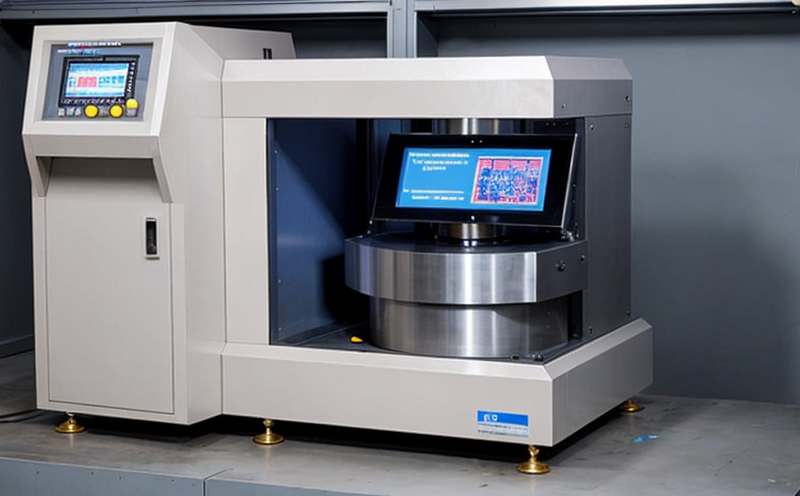ASTM D1204 Dimensional Stability Testing of Films and Sheets
The ASTM D1204 standard is a critical tool in the quality control and compliance processes for additive manufacturing (AM) materials, particularly films and sheets. This test evaluates dimensional stability under various environmental conditions to ensure that these materials maintain their integrity throughout storage and processing.
Dimensional stability testing using ASTM D1204 focuses on the behavior of films and sheets when subjected to changes in temperature and humidity over time. The primary goal is to assess how well these materials retain their original dimensions without expanding, contracting, or warping. This parameter is crucial for ensuring that additive manufacturing products maintain precise tolerances and do not degrade during production.
The test involves conditioning specimens at specified relative humidity levels (typically 23% RH) for a defined period of time. Following this, the samples are allowed to equilibrate in standard conditions before being measured with high-precision metrology equipment such as laser scanners or coordinate measuring machines (CMM). The difference between initial and final dimensions provides an accurate measure of dimensional stability.
This testing is essential for industries reliant on precise manufacturing processes. For instance, the aerospace sector demands materials that can withstand extreme environmental conditions without compromising performance. Similarly, the electronics industry requires components with consistent dimensions to ensure proper fit and function in complex assemblies.
Understanding ASTM D1204's role in additive manufacturing involves recognizing its broader implications for quality assurance. By ensuring dimensional stability, manufacturers can prevent costly rejections during production and enhance product reliability across various applications.
The test is also beneficial for R&D teams looking to innovate within the AM industry. By identifying materials that exhibit superior dimensional stability, they can develop new products or improve existing ones, leading to more efficient manufacturing processes and higher-quality end products.
| Industry | Application |
|---|---|
| Aerospace | Spacecraft components requiring precise fit and function. |
| Automotive | Vehicles demanding durable, stable materials for interior and exterior parts. |
| Medical Devices | Implants that need to fit precisely without altering shape or size over time. |
The importance of ASTM D1204 extends beyond individual industries; it plays a pivotal role in fostering global standards for additive manufacturing materials. By adhering to this standard, companies can ensure their products meet international quality benchmarks and are more likely to gain market acceptance.
- Ensures consistent product performance across various environmental conditions.
- Improves the reliability of end products through precise material selection.
In conclusion, ASTM D1204 dimensional stability testing is a cornerstone in ensuring high-quality additive manufacturing materials. Its application spans multiple industries, from aerospace to healthcare, making it an indispensable tool for quality assurance and compliance.
Industry Applications
- Aerospace: Ensuring spacecraft components fit precisely under extreme conditions.
- Automotive: Developing durable materials for vehicle parts that must withstand various environments.
- Medical Devices: Creating implants and devices that maintain their form and function over time.
| Industry | Specific Application |
|---|---|
| Aerospace | Spacecraft components requiring precise fit and function. |
| Automotive | Vehicles demanding durable, stable materials for interior and exterior parts. |
| Medical Devices | Implants that need to fit precisely without altering shape or size over time. |
The ASTM D1204 test is particularly valuable in industries where dimensional accuracy is critical. By ensuring materials do not expand, contract, or warp under environmental stresses, it enhances the reliability and performance of final products.
Why Choose This Test
- Ensures consistent product performance across various environmental conditions.
- Improves the reliability of end products through precise material selection.
- Supports international quality benchmarks and market acceptance.
- Aids in innovation by identifying materials with superior dimensional stability for new applications.
The ASTM D1204 test is essential for ensuring that films and sheets used in additive manufacturing maintain their dimensions under environmental stress. This consistency is crucial for industries like aerospace, automotive, and medical devices, where precision is paramount.
By choosing this test, companies can gain a competitive edge by producing products that are more reliable and consistent across various conditions. The test also supports compliance with international standards, ensuring products meet global quality expectations.
Competitive Advantage and Market Impact
The ASTM D1204 dimensional stability testing provides significant advantages for companies operating in the additive manufacturing sector. By ensuring that materials maintain their dimensions under environmental stress, this test enhances product reliability and performance. This consistency is particularly valuable in industries like aerospace, automotive, and medical devices.
Compliance with international standards such as ASTM D1204 also supports market entry into regions with stringent quality requirements. Meeting these benchmarks can open doors to new markets and partnerships, enhancing a company's global presence.
Innovation is another area where this test excels. By identifying materials that exhibit superior dimensional stability, companies can develop new products or improve existing ones, leading to more efficient manufacturing processes and higher-quality end products. This capability not only enhances product performance but also drives industry advancement.





